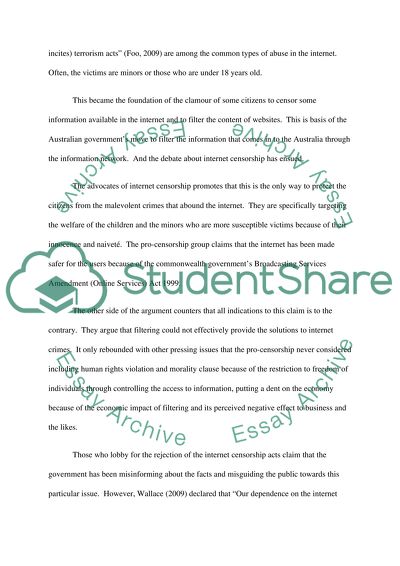Cite this document
(Internet Censorship Coursework Example | Topics and Well Written Essays - 2250 words, n.d.)
Internet Censorship Coursework Example | Topics and Well Written Essays - 2250 words. Retrieved from https://studentshare.org/information-technology/1555136-information-policy
Internet Censorship Coursework Example | Topics and Well Written Essays - 2250 words. Retrieved from https://studentshare.org/information-technology/1555136-information-policy
(Internet Censorship Coursework Example | Topics and Well Written Essays - 2250 Words)
Internet Censorship Coursework Example | Topics and Well Written Essays - 2250 Words. https://studentshare.org/information-technology/1555136-information-policy.
Internet Censorship Coursework Example | Topics and Well Written Essays - 2250 Words. https://studentshare.org/information-technology/1555136-information-policy.
“Internet Censorship Coursework Example | Topics and Well Written Essays - 2250 Words”. https://studentshare.org/information-technology/1555136-information-policy.


